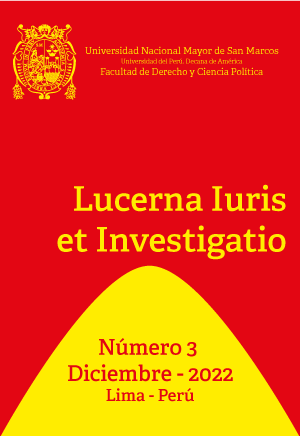Industry 4.0 and the occupational risks of riders in Peru
DOI:
https://doi.org/10.15381/lucerna.n3.20979Keywords:
Industry 4.0, Occupational risks, digital platforms, riders, work on demandAbstract
This article addresses the issue of occupational risks that arise under the new distribution modalities via application in the current context of Industry 4.0, with special emphasis on the Peruvian case. Thus, the study aims to demonstrate the urgent need to regulate the protection of riders against the occupational risks that arise in this new modality, regardless of their recognition as subordinate or autonomous work. Indeed, the problem of riders in Peru has as its core point being an activity that is not protected by Labor Law, as it is not considered as subordinate work. Similarly, at the national level there are no jurisprudential pronouncements on this problem. In terms of safety and health at work in Peru, due to its location in a gray area of labor law, its protection against risks is extremely limited. Thus, the need for a special regulation that includes the protection of riders against the new occupational risks that are generated with the implementation of new technologies in the context of Industry 4.0.
Downloads
Published
Issue
Section
License
Copyright (c) 2022 Max Henry Chauca Salas

This work is licensed under a Creative Commons Attribution 4.0 International License.
THE AUTHORS RETAIN THEIR RIGHTS:
- The authors retain their rights to the work, trademark and patent, and also to any process or procedure described in the article.
- The authors retain the right to share, copy, distribute, execute and publicly communicate the article published in Lucerna Iuris et Investigatio (for example, place it in an institutional repository or publish it in a book), with an acknowledgment of its initial publication in Lucerna Iuris et Investigatio .
- The authors retain the right to make a subsequent publication of their work, to use the article or any part of it (for example: a compilation of their work, conference notes, thesis, or part of a book), provided that indicate the source of publication (authors of the work, journal, volume, number and date).






